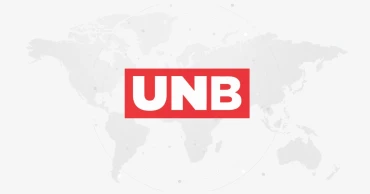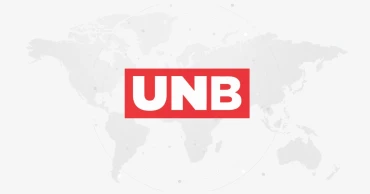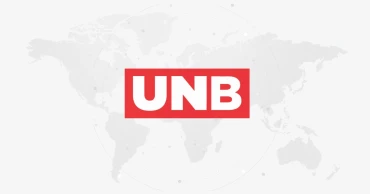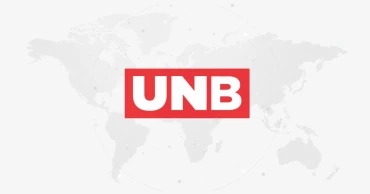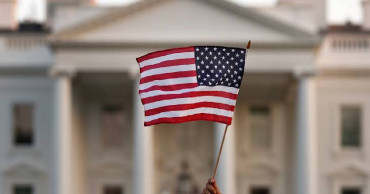US visa restrictions
US visa restrictions: State Dept spokesperson once again refrains from mentioning media
The United States has reiterated that it does not support any particular party and does not want to influence the outcome of the election in Bangladesh.
The US only wants to ensure that the people of Bangladesh can freely choose their leaders.
“So, let me restate or state in slightly different language what I said last week, which is the United States wants what the Bangladeshis themselves want: free and fair elections that are conducted in a peaceful manner,” US State Department Spokesperson Matthew Miller said during a regular media briefing in Washington on October 2.
He, however, once again refrained from mentioning visa restrictions on media. US Ambassador in Dhaka, Peter Haas, during a recent TV interview had mentioned possible visa restrictions on media.
Read more: Eminent citizens voice disappointment over US ambassador’s remarks on visa restrictions against media
During the US State Department briefing, a questioner said that radical groups that advocate “Taliban-style rule” in Bangladesh along with opposition leaders, have hailed the US ambassador’s remark on including media under the visa restrictions, and have already threatened media persons, circulating a list of journalists who have been critical of radical views.
On the other hand, rights activists, anti-war crimes campaigners, editors, writers, minority community leaders found the statement by the US ambassador on possible visa curbs on media to be an “affront to freedom of press” that has been pivotal to the fight against terror, the questioner added.
He asked the State Department spokesperson whether the US supports the statement of the ambassador and denies the concerns raised by such a large group of liberals.
Miller did not give a direct response, but said that the government, political parties, civil society, and the media in Bangladesh have all expressed their desire that the upcoming national election be free and fair and conducted in a peaceful manner – “as we want.”
Read more: No discussion held on visa policy with US Assistant Secretary Bitter: Acting FS
“The visa restriction policy that we’ve announced supports this objective and the desire of the people of Bangladesh to freely choose their leaders,” he said.
2 years ago
US visa restrictions: State Dept spokesperson refrains from mentioning media
Though US Ambassador Peter Haas mentioned inclusion of media in the visa restriction policy for Bangladesh, the United States Department of State refrained from mentioning media.
“I will say that, as we noted when we announced these new visa restrictions on Friday, they include – they include both members of law enforcement, the ruling party, and the political opposition,” US State Department Spokesperson Matthew Miller said during a regular media briefing on September 25.
He also said when the US Secretary of State announced the new visa policy in May, the purpose was not to take a side, but to ensure or to support free, fair, and peaceful national election in Bangladesh.
Chief Justice rails against US visa policy on last working day
Responding to a question specifically on the inclusion of media in the visa restrictions, the State Department spokesperson said: “I think what we have said, and we – so we have not announced because visa records are confidential – we have not announced the specific members or the specific individuals to which this will apply, but it made clear that they will apply to members of law enforcement, the ruling party, and the political opposition.”
Clarifying the issue after US Ambassador Peter Haas’ remarks, the US Embassy in a Facebook post on Monday said, “We are applying the [visa restriction] policy in a balanced way against anyone [undermining the democratic election process in Bangladesh] – regardless of being pro-government, opposition party, members of law enforcement agencies, members of the judiciary, or media persons.”
Image of police won’t be affected due to US Visa policy: IGP
US Embassy Spokesperson Bryan Schiller said the visa restriction policy can be applied to anyone “found to be undermining” democratic elections in Bangladesh.
“This could include vote rigging, intimidating voters, use of violence to prevent people from exercising their rights to freedom of association and freedom of peaceful assembly, and the use of measures designed to prevent political parties, voters, civil society, or the media from participating in the electoral process or expressing their views,” he told UNB while responding to a question.
Responding to a question on BNP Chairperson Khaleda Zia’s release and treatment abroad, US State Department Spokesperson Miller said, “I just don’t have any comment on that.”
What could be the possible reasons to apply US visa restrictions against someone?
2 years ago
No tension with the US, Foreign Minister Momen says
Foreign Minister Dr AK Abdul Momen has ruled out any tension in Bangladesh-US relations following the State Department’s announcement of initiating visa restrictions on Bangladeshi individuals.
“We have no tension with the US,” he told reporters in Manhattan on Saturday (September 23, 2023), noting that the US will not grant visas to those who will try to foil the upcoming election in Bangladesh.
Also read: Bangladesh fully committed to nuclear disarmament: Momen
The foreign minister said that US President Joe Biden wants to strengthen the existing friendly relations with Bangladesh in the next 50 years.
“I am confident our partnership will continue to flourish for the next 50 years and beyond,” Biden wrote in a letter sent to Prime Minister Sheikh Hasina marking the 50-year milestone in the bilateral relationship between the US and Bangladesh.
Also read: Bangladesh among more than 30 countries approved to trade in rouble: Russian Embassy
US Under Secretary for Civilian Security, Democracy and Human Rights Uzra Zeya said the visa policy announcement affirms the United States’ commitment to “free, fair and peaceful” elections worldwide and supports efforts of partners in the Government of Bangladesh, civil society, and media to ensure democratic elections that reflect the will of Bangladeshis.
Earlier, State Minister for Foreign Affairs Md Shahriar Alam said that Bangladesh has nothing to lose and they are not worried about the visa restrictions issue, as they are doing nothing wrong.
Also read: Visa restrictions: US didn’t issue any statement regarding anyone in particular, says Home Minister
Talking to reporters at his residence on Friday night, the state minister also said there is no reason to see further sanctions from the US before the next election as the government has received assurance from the US.
The United States has said it will not release the names or numbers of people in Bangladesh who would face visa restrictions.
Also read: 'Nothing to lose' from visa restrictions: Shahriar Alam
“Visa records are confidential under US law,” Embassy Spokesperson Bryan Schiller told UNB on Friday. But, he said, the US government has looked very closely at incidents since they announced the visa policy. “After a careful review of the evidence, we have imposed visa restrictions on members of law enforcement, the ruling party, and the political opposition,” Schiller added.
2 years ago
‘US wanted to act proactively to send tough message’: Kugelman
Full transcript of UNB’s email interview with Michael Kugelman (MK), director of the South Asia Institute at the Wilson Center in Washington, in the wake of the US announcing it was taking steps to impose the first batch of visa restrictions on Bangladeshi law enforcement officials, and members of the ruling party and political opposition:
UNB: First of all, what do you make of the timing? There was an impression earlier that these restrictions would most likely be imposed after the election, as they were in the case of Nicaragua and Zimbabwe. What do you think Washington is trying to signal by coming out 3 months prior and announcing the first restrictions? Is it dissatisfaction with how the overall preparations are going?
MK: I think the US wanted to act proactively, to send a tough message. In effect: This is important to us, we mean business, we want that free and fair election, and here's what we'll do in the weeks leading up to it when we see someone trying to imperil that outcome. Keep in mind that the Biden administration genuinely wants a close relationship with Dhaka, and so it doesn't want to be in the tough position of having to decide whether to review the future of the relationship if the election is deemed to be unfree and unfair. For Washington, the goal is to give the full Bangladesh state—the political class, law enforcement, media, business leaders, and so on—the strongest possible incentive to ensure a free and fair election, so that the US doesn't have to make that difficult decision.
Read: Visa restrictions imposed upon 'careful review of evidence': US embassy
UNB: Although US law doesn't allow it, to the extent that we're allowed to speculate, do you think there are some really big fish that would have come under the restrictions? Without them it may be futile don't you think?
MK: I don't know the identities of the people targeted, though indeed a stronger message would be sent if some big fish were among them.
UNB: Visa restrictions are not the same of course, as Magnitsky sanctions. Do you think these individuals, whoever they are, should now worry that they might be brought under Magnitsky, say if they turn out to be repeat offenders in the days ahead?
MK: I think this depends on who the people are that were targeted. If some of those targeted are business leaders and others that depend on transactions with the US, then one can't rule out Magnitsky. That said, as I understand them, these visa restriction policies are specific in scope and don't stipulate—at least not publicly—that they could expand into wider restrictions that would encompass Magnitsky.
Read: US taking steps to impose first batch of visa restrictions
UNB: A US delegation is due next month to assess the situation on the ground for an observer mission during the election. The EU has already said it won't send observers after its own team came and assessed the conditions. How much of a blow do you think it would be if the US also says no? Do you see a 'No' as a rejection of the process?
MK: A decision not to send observers can be spun differently depending on where you sit politically. Certainly, for the opposition and other government critics, not sending observers can be pointed to as an indication of the international community having lost faith in the idea of a free and fair election and not wanting to be part of an electoral process that it feels is destined to fail. But the government could spin it as a success, that the international community must be sufficiently confident about the election being free and fair if it has no need to have observers in place.
Read: 'Nothing to lose' from visa restrictions: Shahriar Alam
UNB: Finally, do you see the possibility of wider sanctions on say trade or other things, depending on the quality of the election?
MK: I do think the administration will review the future of the relationship if the election is deemed to be rigged. This could result in a decision to downgrade some aspects of the relationship, and possibly new sanctions. But the administration will need to be careful. It truly values its partnership with Bangladesh, which has grown in recent years, especially on the trade side. And against the backdrop of rapidly intensifying great power competition, Bangladesh, as a non-aligned state sitting astride the Indian Ocean, has great strategic importance for Washington. There are also influential actors, like the US-Bangladesh Business Council, which would likely push back against trade sanctions and any plan to rein in commercial relations. So the US would need to be cautious in its approach.
Read more: A big moment for Bangladesh and its relations with US: South Asia specialist
2 years ago
Eritrea expresses 'dismay' at new US visa restrictions
The East African nation of Eritrea on Sunday expressed "dismay at this unfriendly act" after the Trump administration included it in the latest six countries to face U.S. visa restrictions.
6 years ago
